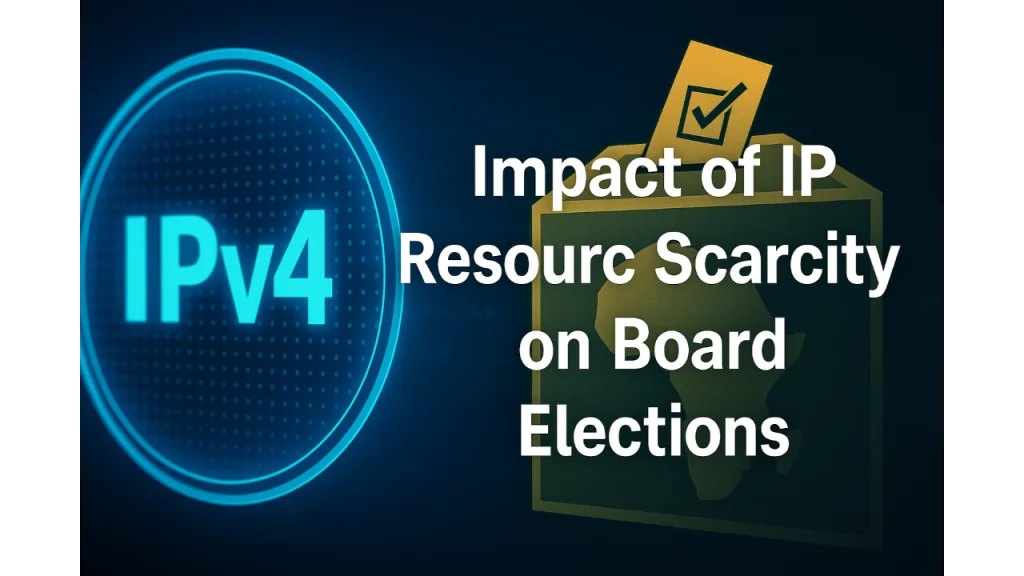- AFRINIC’s dwindling IP address pool is driving internal power struggles and distorted election priorities.
- Experts warn resource scarcity has become a political weapon in AFRINIC’s already broken governance system.
What happened: IP scarcity becomes a political fault line
AFRINIC’s ongoing election crises cannot be separated from the growing scarcity of IP resources in Africa. As the IPv4 free pool dried up globally, control over allocations became a source of leverage. In the 2025 annulled board election, disputes over eligibility and policy direction were fuelled by arguments about who should control the last remaining IP blocks.
The result is a governance system shaped less by fairness and more by control. Observers say AFRINIC’s leadership vacuum allows vested interests to weaponise the allocation process — rewarding allies, delaying competitors, and politicising technical functions.
Also read: AFRINIC’s hidden scandal: How legal fees exposed a culture of corruption
Also read: Why AFRINIC’s election security needs stronger legal guarantees in Mauritius
Power imbalance and weakened legitimacy
Smaller network operators, already disadvantaged by limited access to resources, find their representation shrinking further. Critics argue that AFRINIC’s failure to separate technical management from political interest has allowed “allocation diplomacy” — where loyalty, not merit, dictates who gets addresses first.
Also read: AFRINIC’s hidden scandal: How legal fees exposed a culture of corruption
How scarcity feeds dysfunction
In a healthy registry, transparent elections ensure accountability for resource decisions. In AFRINIC, the opposite has occurred. The more scarce IP space becomes, the greater the temptation to manipulate who decides its fate.
Without an accountable board, the allocation of remaining IPv4 and transition to IPv6 lack oversight. Independent analysis from APNIC Labs and ICANN shows Africa’s IPv6 adoption remains among the lowest worldwide — a direct result of AFRINIC’s stalled leadership and internal disputes.
Also read: What is an IPv4 address?
Why this matters for Africa’s internet future
Africa’s internet growth depends on fair access to IP resources. When elections collapse and governance is replaced by courtroom management, network operators lose trust in the system. Startups and smaller providers are left unable to obtain addresses, slowing digital expansion and raising costs across the region.
In a world already moving toward IPv6, AFRINIC’s paralysis risks leaving Africa further behind. The registry’s inability to manage both elections and address distribution reflects a deeper failure: it has lost sight of its purpose as a community-driven institution serving all of Africa, not just a powerful few.

